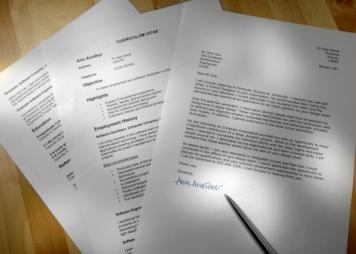Career Development Plans

It provides a structured approach to identifying goals, developing necessary skills, and staying on track to achieve professional success.
This guide will outline the steps involved in creating a career development plan, setting goals for success, and provide tips and tools to help professionals stay focused and motivated along their career journey.
Understand the Purpose of a Career Development Plan
A career development plan is a strategic roadmap that helps individuals identify their career goals, assess their current skills and knowledge, and outline steps to acquire new skills and advance in their chosen field. It provides clarity, direction, and a sense of purpose, ensuring that professionals remain focused and motivated.
Self-Assessment
To create an effective career development plan, start by conducting a thorough self-assessment. This involves analyzing your strengths, weaknesses, interests, values, and aspirations. Consider the following questions:
- What are your skills, talents, and areas of expertise?
- What tasks or activities do you enjoy the most?
- What are your core values and what type of work aligning with them?
- What are your long-term career aspirations?
Set SMART Goals
Setting goals that are Specific, Measurable, Achievable, Relevant, and Time-bound (SMART) is essential for effective career planning. Follow these steps to set SMART goals:
- Specific: Clearly define what you want to achieve. For example, instead of saying, "I want a better job," specify the desired position or industry.
- Measurable: Establish criteria to track your progress and determine when you have achieved the goal. For instance, set targets such as obtaining a specific certification or receiving a certain number of job offers.
- Achievable: Ensure that your goals are realistic and attainable within your current circumstances. Consider the resources, time, and effort required to achieve each goal.
- Relevant: Align your goals with your long-term career aspirations and personal values. Ensure they contribute to your overall career development.
- Time-bound: Set deadlines for each goal to create a sense of urgency and motivate yourself to take consistent action.
Identify Skill Gaps
Once you have established your goals, identify the skills and knowledge necessary to achieve them. Conduct research on the requirements of your desired job roles or industries. Compare your current skill set with the desired skills and identify any gaps that need to be addressed. This will help you plan the development of new competencies and acquire the necessary qualifications.
Create an Action Plan
With your goals and skill gaps identified, it's time to develop an action plan. Break down each goal into smaller, actionable steps. Consider the following:
- What specific actions can you take to develop the required skills?
- Are there any courses, certifications, or workshops you can enroll in?
- Can you seek mentorship or guidance from industry professionals?
- Are there networking events or professional associations you can join to expand your connections?
Seek Learning and Development Opportunities
To enhance your skill set and knowledge, actively seek learning and development opportunities. Some tips include:
- Attend workshops, conferences, and seminars relevant to your field.
- Enroll in online courses or pursue a degree program to gain formal qualifications.
- Seek mentorship or guidance from experienced professionals in your desired field.
- Participate in industry-related projects or volunteer work to gain practical experience.
- Stay updated with industry trends and advancements through books, articles, podcasts, or online resources.
Networking and Professional Relationships
Building a strong professional network is crucial for career advancement. Consider the following networking tips:
- Attend industry events, conferences, or meetups to connect with professionals in your field.
- Join professional associations or organizations related to your industry.
- Utilize online platforms like LinkedIn to expand your professional network.
- Attend informational interviews or shadow professionals to gain insights and build connections.
Monitor Progress and Adjust
Regularly review your progress and make adjustments to your career development plan as needed. Set aside time to reflect on your achievements, challenges, and lessons learned. Make necessary revisions to your goals and action plan based on changing circumstances or new opportunities.
Tips and Tools to Stay on Track:
- Use a calendar or planner to schedule specific tasks and deadlines.
- Break down larger goals into smaller milestones for a sense of achievement.
- Seek accountability by sharing your goals with a trusted mentor or friend.
- Regularly reassess and update your career development plan.
- Utilize online platforms and resources such as career development websites, professional forums, and online courses.
- Join relevant LinkedIn groups or online communities to connect with professionals in your field.
A career development plan is a vital tool for professionals seeking to enhance their careers and find better job opportunities. By following the steps outlined in this guide, you can create a clear roadmap to success, set SMART goals, identify skill gaps, and take actionable steps toward achieving their career aspirations.
With dedication, continuous learning, and networking, professionals can stay on track and make significant progress in their career journeys.
The information provided on www.onepercentforamerica.org is intended for general informational purposes only. It should not be considered as professional advice or a substitute for seeking professional guidance.



